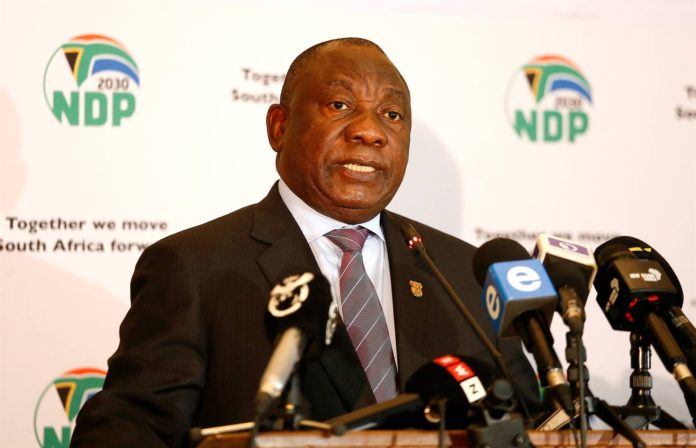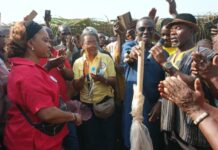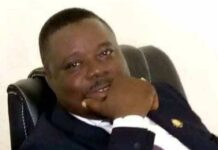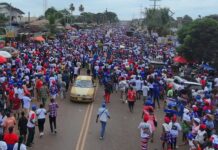
South Africa’s top court on Thursday cleared President Cyril Ramaphosa of lying to parliament about a donation to his 2017 election campaign, quashing a critical report by the country’s ombudswoman.
Known in South Africa as the public protector, Busisiwe Mkhwebane in 2019 determined that Ramaphosa had deliberately misled the National Assembly in his answer to a question posed by an opposition lawmaker the previous year.
She also said there was evidence of money laundering, conflict of interest and personal enrichment — prompting the president to challenge the legality of her report.
AFP news agency quoted that the High Court dismissed the report last year and the Constitutional Court on Thursday upheld that decision.
“The Public Protector was wrong on the facts and on the law with regard to the issue that the president had wilfully misled parliament,” said justice Chris Jafta.
Jafta also said there was no evidence to support money-laundering allegations or to show the president had personally benefitted from campaign donations.
He added that investigations into the “private affairs of political parties” were outside Mkhwebane’s jurisdiction.
The allegations date back to November 2018, when the then leader of the main opposition Democratic Alliance party, Mmusi Maimane, asked Ramaphosa to clarify a 500,000 rand ($35,000) payment to his son from the head of a South African company named African Global Operations (AGO).
Ramaphosa explained his son, Andile Ramaphosa, had carried out paid work for the company.
One week later, Ramaphosa wrote to the National Assembly to correct his response, explaining the payment was in fact a donation to his electoral campaign to succeed ex-president Jacob Zuma as head of the ruling African National Congress (ANC) party.
The Public Protector then launched an investigation into the matter.
Ramaphosa came to power on a promise to crack down on rampant corruption carried out under Zuma’s administration.
A validation of Mkhwebane’s report would have presented a significant setback for his reputation.
The next national elections in South Africa are due in 2024. The head of state is elected indirectly through parliament, which has been dominated by the ANC since the advent of democracy in 1994.

























Comments are closed.